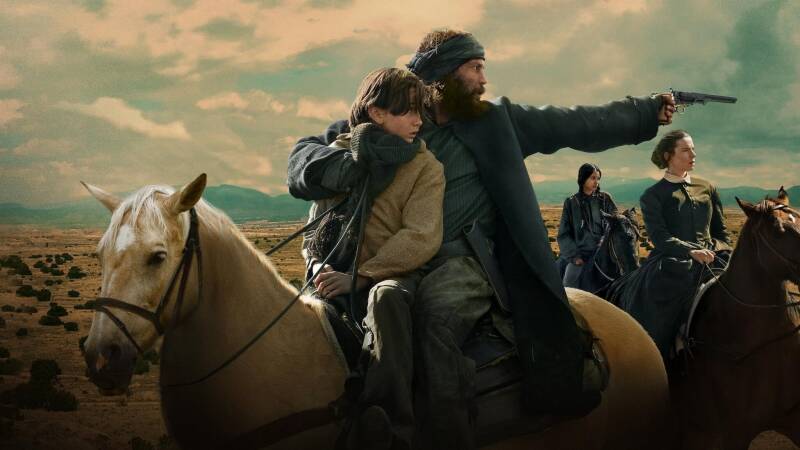
"American Primeval" is not just any old western limited series—it's an unrelenting ordeal. A brutal, blood-soaked journey into the Wild West that grabs you by the throat and starts peeling back your scalp. Directed by Peter Berg and written by Mark L. Smith, the show plunges viewers into a merciless vision of 1850s America, where survival isn’t just improbable—it’s borderline miraculous.
At the center of this unyielding narrative is Sara Rowell (Betty Gilpin), a mother determined to carve out a new life for herself and her son, Devin, amidst a wilderness that seems hellbent on breaking every last shred of hope. As they make their way toward their new home, their journey entangles them with a host of characters—each more battered, desperate, and dangerous than the last.
Taylor Kitsch’s Isaac Reed, a retired mountain man with a past steeped in violence, emerges as an unlikely ally, but even his rugged expertise often feels inadequate against the chaos and carnage that unfolds.
Peter Berg directs with his signature intensity, but this time, he ratchets up the stakes to almost unbearable levels.
The violence here isn’t stylized; it’s raw, ugly, and unflinching. Blood doesn’t just spill; it stains every inch of the narrative, a reminder of the human cost of every inch of so-called progress. And yet, it’s not gratuitous—it’s purposeful. Every arrow, every gunshot, every whispered prayer feels earned in this unforgiving world.
What stands out most about "American Primeval" is its refusal to romanticize the West. There’s no sweeping orchestral score to soften the edges, no sanitized heroics to reassure you that good will triumph. Instead, Berg and Smith strip away the mythos, leaving behind a raw nerve of a show that confronts the violent, exploitative roots of America’s expansion. It’s uncomfortable, often horrifying, and yet utterly captivating.
The performances are stellar across the board. Gilpin is magnetic, balancing vulnerability with a fierce, protective determination. Kitsch, reuniting with Berg, delivers one of the most compelling performances of his career—a man both hardened by and deeply haunted by the world he inhabits. Dane DeHaan and Saura Lightfoot-Leon, playing survivors of a devastating attack, bring an emotional core to their subplot that is as devastating as it is humanizing.
At just six episodes, "American Primeval" doesn’t waste a second. Every moment drips with tension, every interaction feels like it could end in disaster. The land itself is a character, a bleak and unrelenting force that swallows the weak and tests the strong. By the time the credits roll on the final episode, you’ll feel like you’ve been through the wringer—and yet, you won’t want to look away.
This is not an easy watch, nor is it meant to be. "American Primeval" is a reminder that the past is neither clean nor simple. It’s messy, violent, and often horrifying—but it’s also undeniably compelling. For those with the stomach to endure its harsh truths, it’s a ride worth taking. Just don’t expect to walk away unscathed.
8.5/10
Add comment
Comments